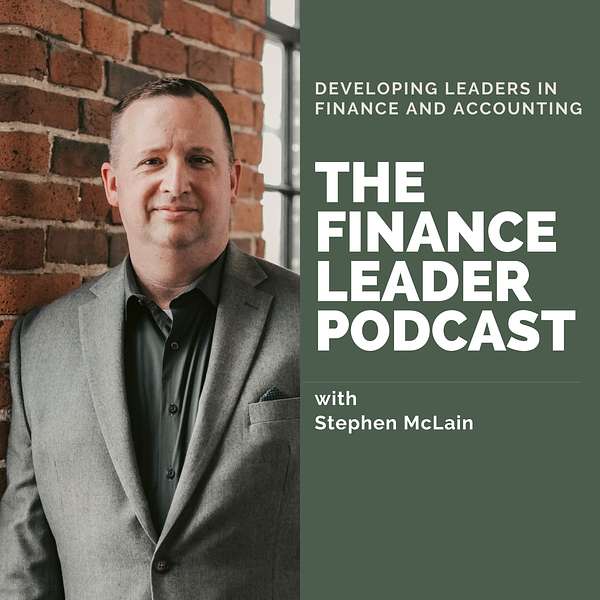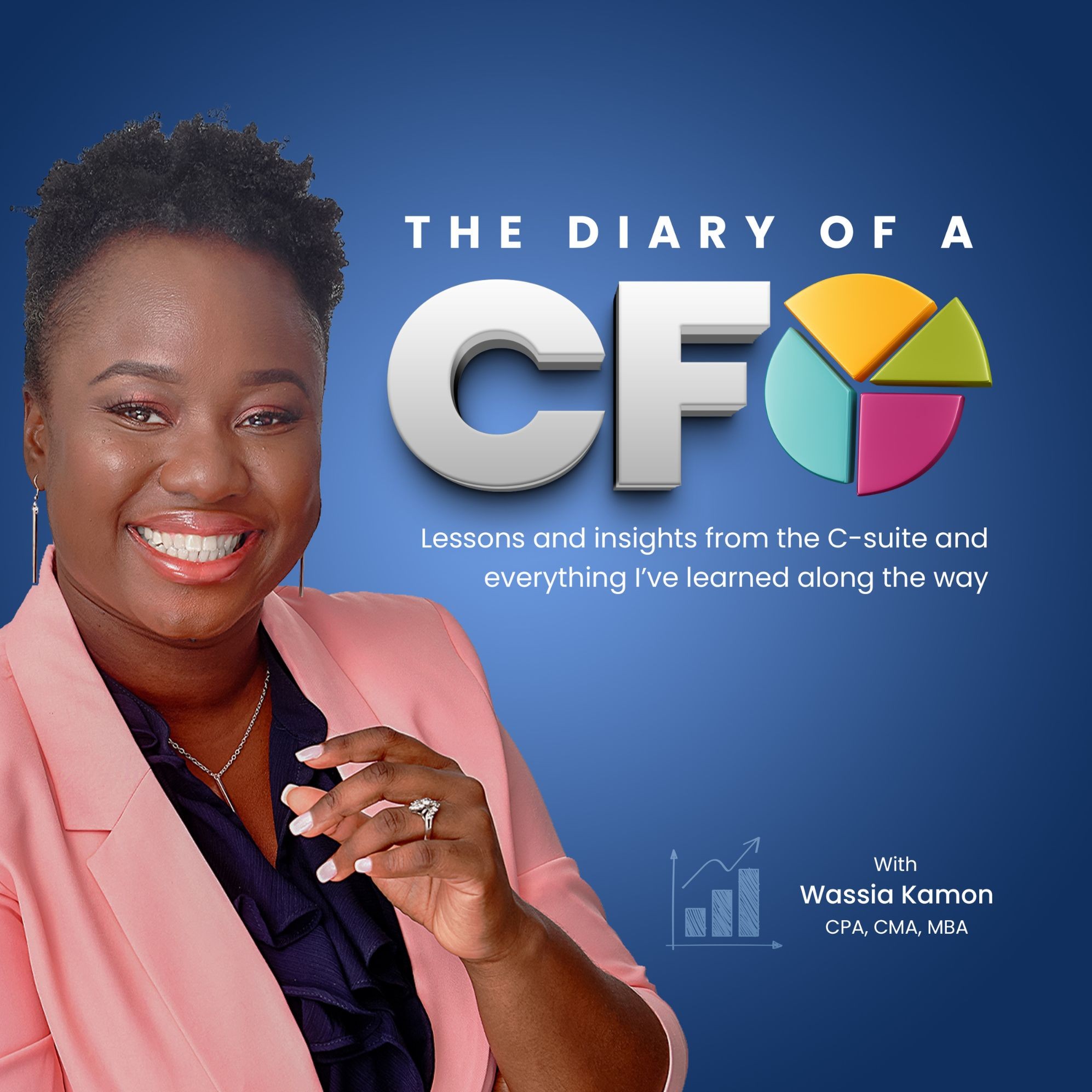
The Finance Leader Podcast
The Finance Leader Podcast
Lessons in Strategic Communication for Finance Professionals
Embark on a journey through the treacherous terrain of strategic messaging as we dissect the recent communication blunders of Kellogg's and Wendy's. It's a perilous world out there for finance and accounting leaders tasked with navigating their company's external narratives – one wrong word could spell disaster for your brand's reputation. In this episode, we delve into why empathy and understanding the economic pulse of your audience is not just important, but critical for those speaking on behalf of their company. Discover key concepts and actionable guidance to bulletproof your public communication strategies, ensuring your messaging hits the mark every time.
Join me as we explore the nuances of crafting messages that resonate with consumers and safeguard your personal and corporate brand integrity. We'll unravel the dire consequences of disconnect and arrogance in communications, providing lessons that finance leaders can't afford to ignore. Learn how to wield the power of consistency, align company values with consumer needs, and genuinely connect with your audience—all while avoiding the snares of misplaced humor or off-the-cuff remarks. Tune in to fortify your leadership toolkit and ensure that when you speak, your audience doesn't just listen—they trust and believe in what you have to say.
Please connect with me on:
1. Instagram: stephen.mclain
2. Twitter: smclainiii
3. Facebook: stephenmclainconsultant
4. LinkedIn: stephenjmclainiii
For more resources, please visit Finance Leader Academy: financeleaderacademy.com.
- On the website, you can download the Become a Finance Leader Guide. You can use this guide to build your Finance Leadership skills so you can help senior leaders develop and execute the strategy.
- I also offer a course, Advance Your Finance and Accounting Career: Developing a Promotion Strategy that Sets You Apart.
Recently we witnessed two significant strategic messaging failures like global brands. As you rise into more senior finance and accounting roles, you will have opportunities to communicate key information about your company. When speaking for the company externally, you must use the proper context when communicating your message. messaging that lacks empathy or seem to be out of touch is risky and potentially brand damaging. Consult your communications team before going off script to ensure that you don't offend your customers. Please enjoy the episode. Welcome to the finance leader podcast where leadership is bigger than the numbers. I am your host, Stephen McLain. This is the podcast for developing leaders in finance and accounting. Please consider following me on Twitter, Facebook, Instagram and LinkedIn. My usernames and the links are in this episode's show notes. Thank you. This is episode number 122. And I will be talking about strategic messaging failures. journalist and author Germany Kant said, you are responsible for everything you tweet and retweet. I am going to talk briefly about recent strategic communication failures by two huge and well recognized global brands. And that's Kellogg's and Wendy's you probably already heard about these two incidents. Both created outrage from consumers who showed that the companies did not possess any idea what people are currently experiencing regarding economic conditions. In case you missed it, I'll give a brief overview of both failures. The Kellogg's CEO Gary pelvic suggested that families who are experiencing the reality of higher food costs can have cereal for dinner. The valid possibility and trust me, I often eat cereal at all times of the day and night. The suggestion came off as arrogant and extremely out of touch. Because of the tight budgets that are being experienced by many families, and many people are losing their jobs right now. inflation and higher food costs are real and should not be taken as some whimsical issue. Pillow Nick tried to explain later that he was merely advertising his cereal brand, but the damage was done. Another failed strategic messaging incident came from Wendy's. Now Wendy's announced a new pricing model that was reported as a surge pricing model similar to ride sharing apps. The initial reporting may have been wrong, but the damage was also done there too. Wendy's did not communicate early what could be perceived as a pricing model that looked like it would take advantage of you. Wendy's did say that the new pricing model is supposed to reduce prices to entice customers in you can destroy your company's brand and your own personal brand in moments through failed strategic messaging. By looking out of touch with a struggling population, no one wants to hear from a multimillionaire with any suggestions that lack empathy, or as condescending. I am mentioning this today because it's important for finance and accounting teams and their leaders to be knowledgeable about strategic messaging. Since you may find yourself on an earnings call, or as a guest on a podcast like this are quoted in an article and in many other ways. sending the wrong message can result in great harm to the brand. Even if reporters get it initially wrong. You have to be proactive with your strategic messaging. I want to address a few strategic messaging concepts I am no expert in strategic communication. But I do want to share a few thoughts that can help I do want to bring this topic up again later in another episode. The first issue to consider is consistency. External messaging must be consistent. To avoid confusion, your communications team should help you prepare if you must speak for the company externally. Consistency keeps the messaging the same for every situation. It helps your customer to know what is happening. If your company will be rolling out a new significant policy or change in their products or services. Get the messaging out early before someone else can misinterpret your intentions. Everyone who speaks must be consistent in tone and context. Next is to communicate your value as a company your offers products and services must communicate ethics, empathy and understanding. How can you help your customer with the struggles they are facing? How does your company's values align with your customer and the population in general? I also recommend that you connect with your audience on a personal level and don't alienate them. Try your Best to understand your customer and what they are facing in this world connect and understand, know their challenges and problems and show them solutions that actually mean something. Finally, use great judgment when attempting humor or going off script. The best advice is to limit your humor and going off script. Stick to the talking points and facts. be likable, but understand your audience and your customer. Now for action today, are you prepared to talk and communicate in a public forum about your company that is value added and will not cause massive brands harm? If not develop your strategic messaging skills to become more prepared? Engage with your communications team to learn more. Today I talked briefly about strategic messaging fails. My desire for the shorter episode today was to remind us to use some better judgment when communicating in public. Talking off script or attempting humor can be very detrimental to your brand in your own career. We all need training and development in strategic communication as we rise in our career. Always consult with your communications team before talking publicly about the company rehearse your message, and be prepared for possible questions. Don't damage the brand and always think before you speak. I hope you enjoyed the finance leader podcast I am focused on helping this community to become more confident and finance leaders capable of transforming organizations. You can find this episode wherever you listen to podcasts. If this episode helped you today, please share with a colleague and leave a quick written review. Until next time, you can check out more resources and finance leader academy.com and sign up for my weekly updates. You don't miss an episode of the podcast. And now go lead your team and I'll see you next time. Thank you

